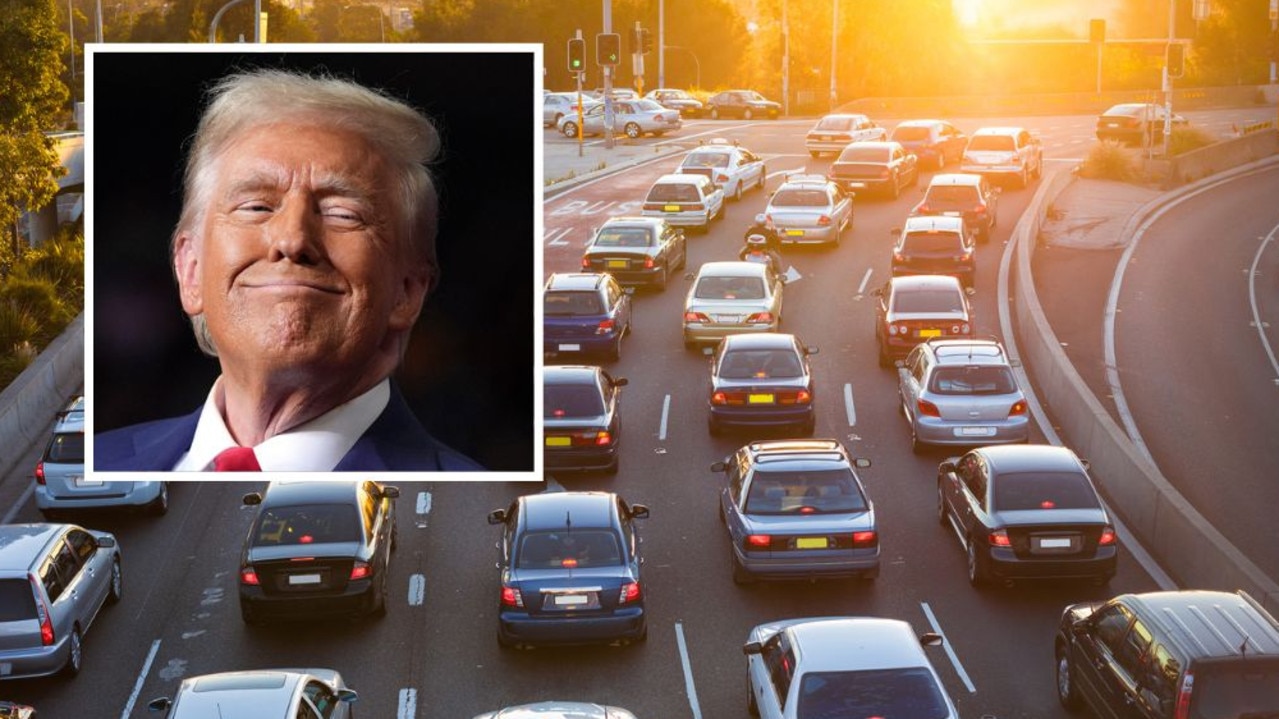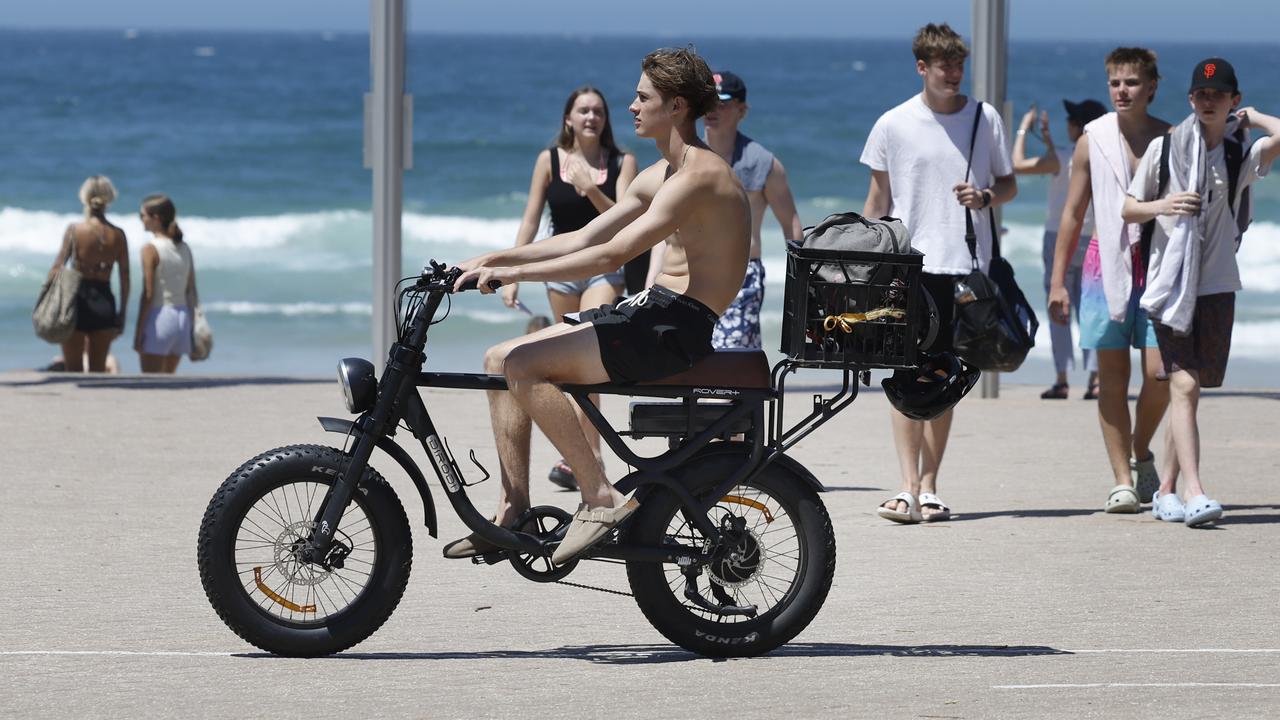Why the Ford Mustang bucks the green trend
Electric cars are becoming the must-have wheels on Australian roads, but one manufacturer believes there’s still life left in the hairy-chested V8.
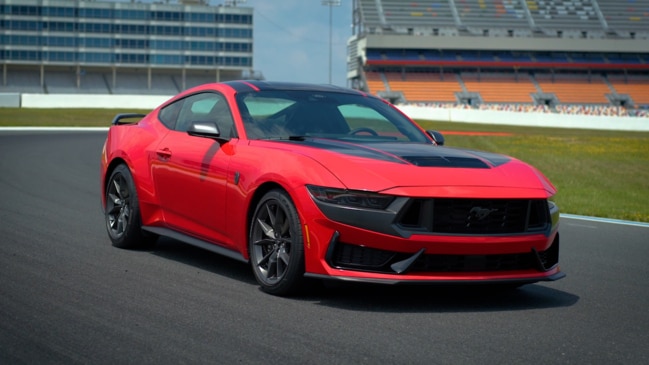
Motoring News
Don't miss out on the headlines from Motoring News. Followed categories will be added to My News.
Ford calls this car the Dark Horse, but the latest Mustang is more like a well-backed favourite in the race to capture the hearts and minds of petrolheads.
While arch-rivals Chevrolet and Dodge prepare to end production of the Camaro and Challenger, Ford is ramping up production of a seventh-generation of its classic muscle car.
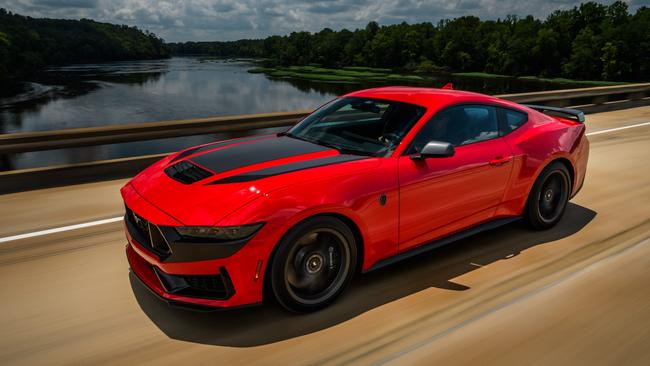
The new coupe shares the same fundamental hardware as the outgoing model, along with its choice of 2.3-litre turbo “EcoBoost” or 5.0-litre V8 engines and six-speed manual or 10-speed automatic transmissions.
A fresh interior with twin digital displays, improved connectivity and better materials makes the car feel far more modern than before.
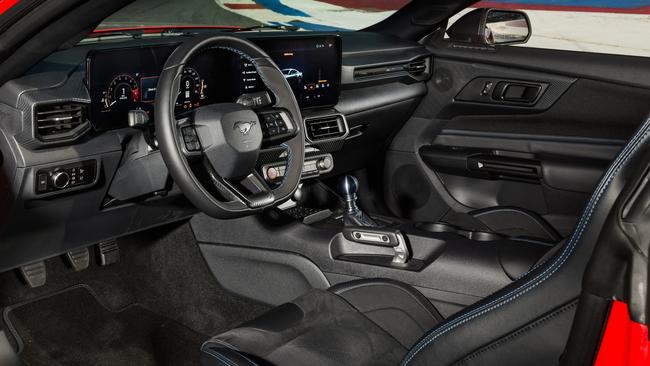
The big news ahead of the Mustang’s arrival in the first half of next year is that the range will be crowned by a track-ready Dark Horse model pitched toward keen drivers.
Stronger than the Mustang GT, the Dark Horse is expected to produce about 370kW and 570Nm when power figures for Australia are locked in.
It has a reinforced six-speed manual transmission among a raft of tweaks that include bigger brakes and a beefed-up cooling package. We put it to the test at Charlotte Motor Speedway.
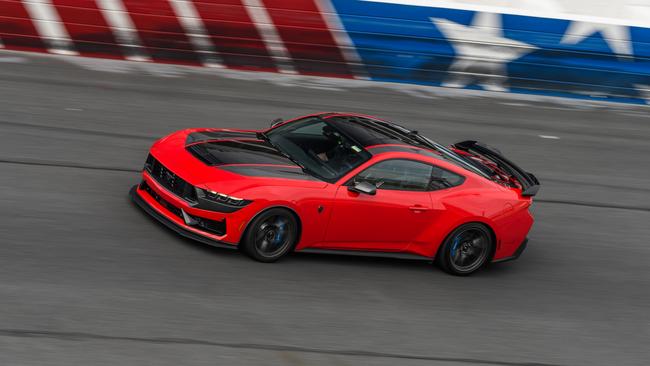
The Mustang’s thermometer reported an outside temperature of 105 degrees Fahrenheit (40.5 celsius) as we approached 130 miles per hour (210 km/h) on the circuit’s steep banking.
Nevertheless it felt mighty on track, surging ahead with the intoxicating combination of effortless shove and a classic soundtrack exclusive to V8-powered performance cars.
This is a taut, crisp and responsive powerplant that bellows under load and snarls at high engine speeds.
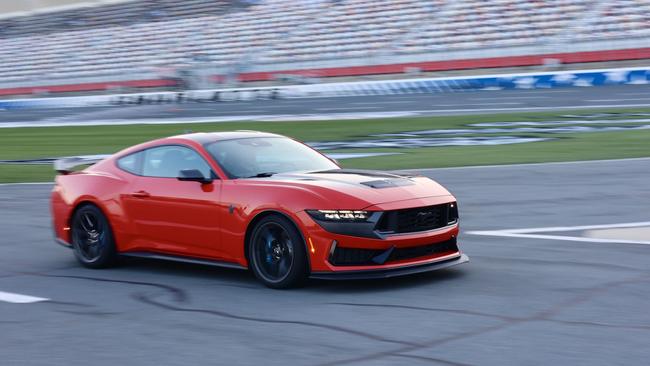
Strong brakes, well-controlled body movement and crisp responses from a flat-bottomed steering wheel instil confidence to explore its potential.
The Mustang is a relatively common sight in Australia as the nation’s best-selling sports car. But it is far more common in the suburbs surrounding Charlotte, the North Carolina town that first held a stock car race in 1949, which went on to become the NASCAR Cup Series.
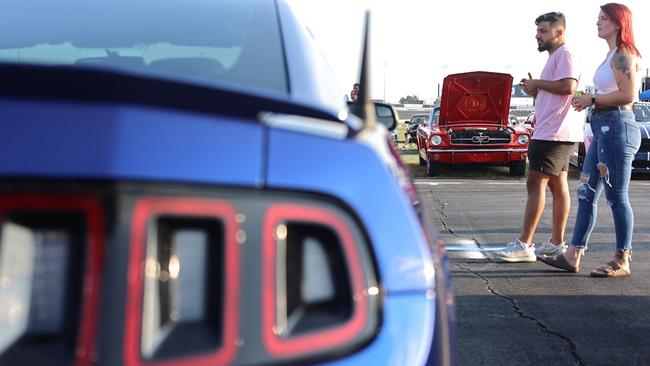
Hundreds of Mustang fans met us at the speedway as Ford unveiled a racing version of the Dark Horse.
Most owners we encountered were friendly, including the imposing bloke wearing a t-shirt declaring “John Wick didn’t kill all those people for a Camaro”.
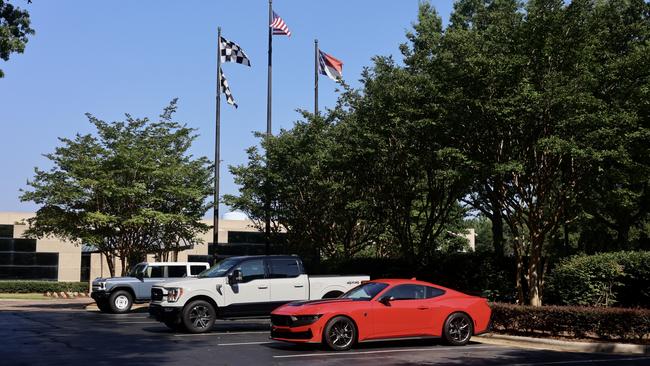
Trading the track for the road, we headed north to Mooreseville for a tour of Team Penske to meet the outfit that won the NASCAR Cup Series in 2022.
Defending champion Joey Logano can choose any Ford as his daily driver, including the hi-tech Mach-E electric car or tough-as-nails F-150 Raptor R pick-up.
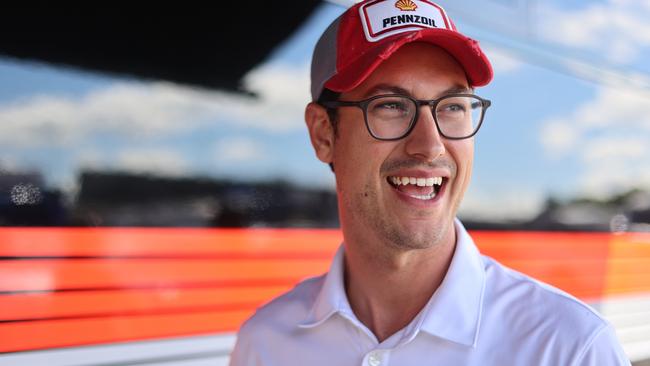
But the 33-year-old racer prefers to “romp” in his Mustang, savouring the sound and feeling of a high-performance V8.
Wheeling west takes us to West Virginia’s Blue Ridge Mountains and Shenandoah River made famous by John Denver’s Take Me Home, Country Roads.
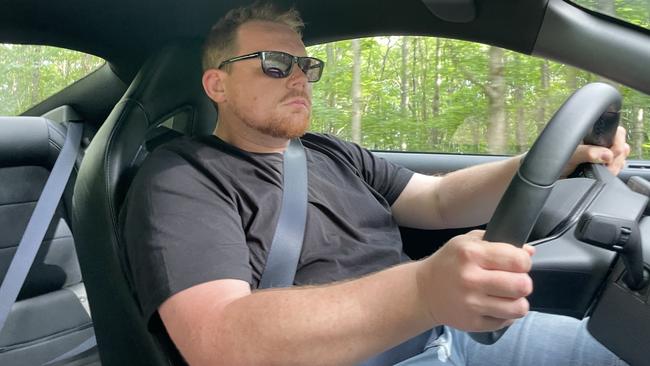
It’s a beautiful location that fits the pony car perfectly, a rolling feel-good cauldron of folk rock familiarity, gorgeous vistas and snaking routes that you wish would never end.
A long highway stint reinforced the soothing charm of a loping V8 on the open road.
We pulled up for a break outside North Wilkesboro Speedway, a worn-looking oval circuit owned by Dale Earnhart Junior, the son of America’s equivalent to Peter Brock.
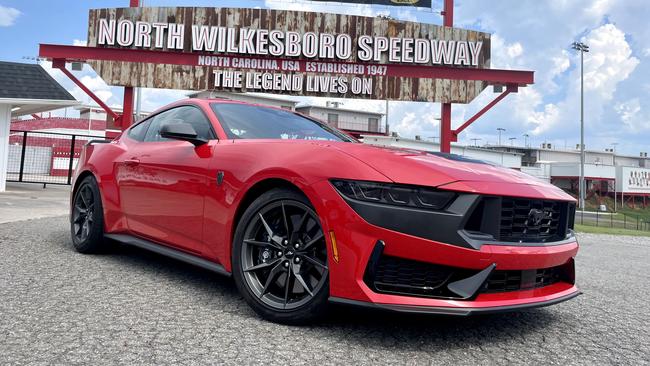
Faded Winston cigarette sponsorship frames a loud, thirsty and unashamedly brash sports car that feels worlds apart from the steady flow of hybrid and electric cars in today’s showrooms.
Thirsty V8 models are falling out of favour – even the fire-breathing Mercedes-AMG C63 is going green with a rather sensible 2.0-litre hybrid engine.
Both the car and the location are anachronisms.
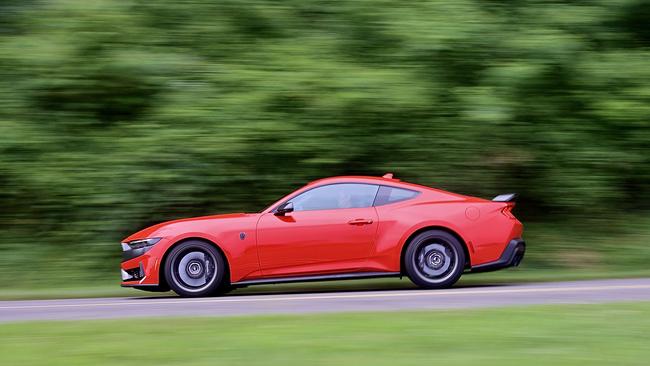
Yet the Mustang is anything but anti-social.
It draws positive attention at (all too frequent) fuel stops, eliciting smiles, thumbs-up gestures and polite requests to give it a rev.
Gavin, a young bloke driving his V8-powered Dodge Charger RT near Roanoke, is appropriately impressed.
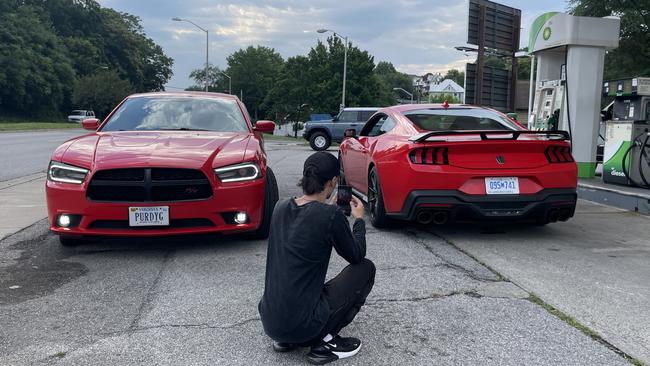
“That’s awesome! It sounds mean as heck,” he said.
“I like the classic muscle car sound.”
The Mustang’s song echoes east as we head to Richmond, home to this week’s NASCAR race. Our road car’s rumble is drowned out by the shattering, serrated wall of sound emanating from thirty-odd race cars at full throttle.
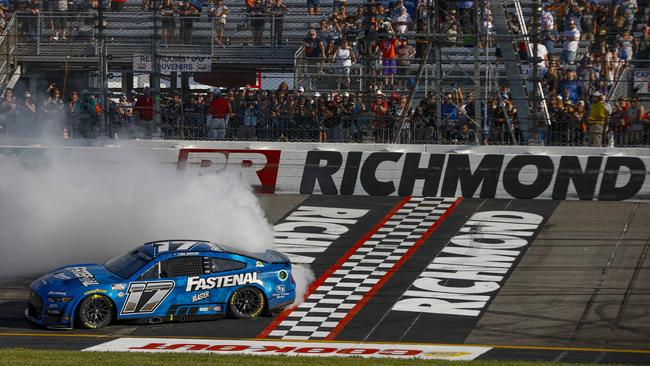
It’s a stunning spectacle in the metal, and it’s not hard to see why oval racing inspires people to choose something visceral as their next car.
Appropriately enough, Ford took a popular victory on track as young Texan Chris Buescher combined with a team started decades ago by legendary engine builder Jack Roush to take an unlikely win for the number 17 Mustang.
You might even say they were a Dark Horse.
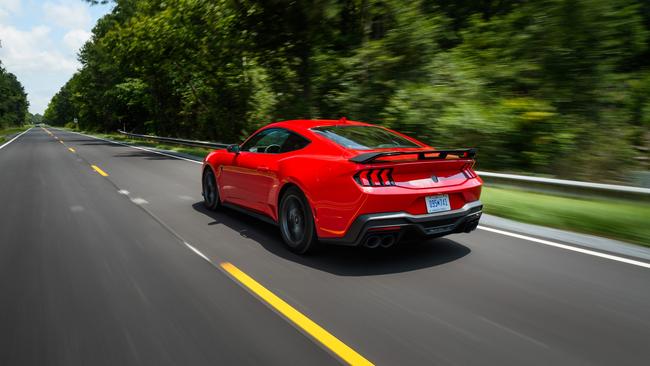
FORD MUSTANG DARK HORSE
PRICE About $100,000 drive-away
ENGINE 5.0-litre V8, 367kW and 567Nm
SAFETY 7 airbags, active cruise control, auto emergency braking, lane keep assist, blind-spot monitoring, rear cross-traffic alert
THIRST About 15L/100km
BOOT 377 litres
SPARE Repair kit
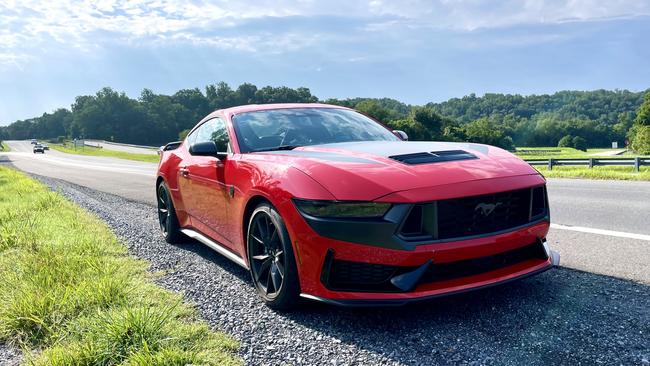
Originally published as Why the Ford Mustang bucks the green trend

